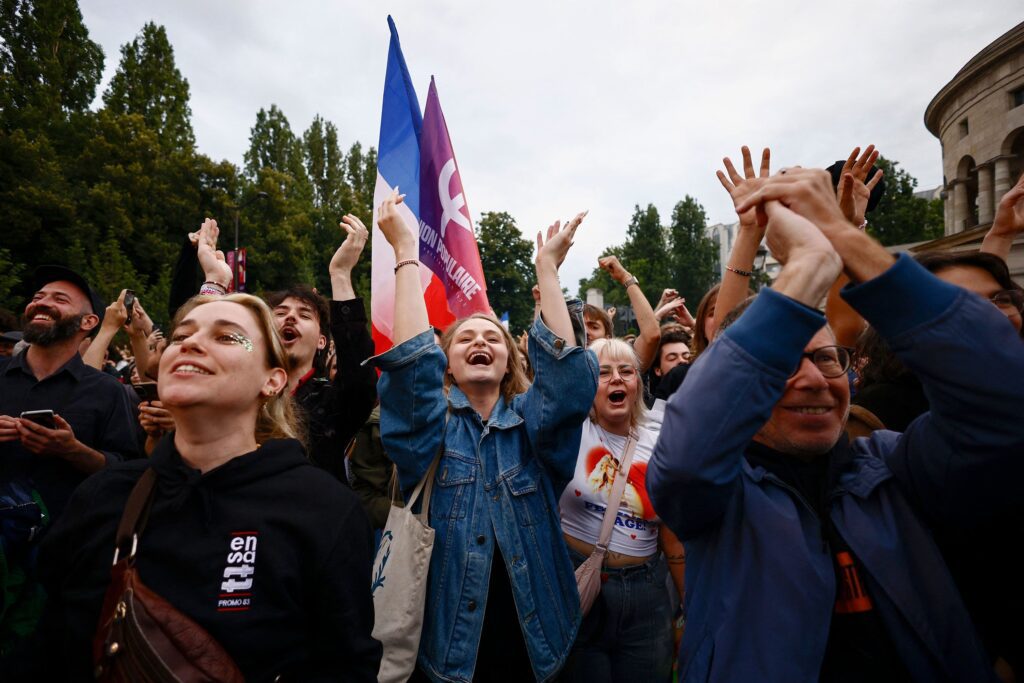On Sunday, thousands of people gathered in the Republic Square in Paris to celebrate the victory of the left-wing alliance the New Popular Front and, concurrently, the defeat of the rising extremist right-wing movement in the second round of the country’s legislative election.
The New Popular Front (NPF) is an alliance of a range of different political inclinations including socialists, ecologists, communists and the La France Insoumise party led by politician Jean-Luc Mélenchon.
In the United Kingdom, the Conservative party suffered the greatest defeat in its history as it lost 244 seats, including those of twelve Cabinet ministers and former Prime Minister Liz Truss.
The party that benefitted the most, however, is the right-leaning Labour party, previously branded as a leftist party, but now riddled with non-progressive and pro-Zionist inclinations.
Defying Global Trends
In 2022, current Italian Prime Minister and leader of the Brothers of Italy party Georgia Meloni was elected. In 2023, the Dutch right-wing populist party Party for Freedom became the largest party after the Dutch general elections with 37 seats out of 150 in the House of Representatives.
With many similar victories for extremist right-wing parties across Europe and the world, the victory of the NPF in France and the defeat of the conservatives in the UK come in direct contradiction to global electoral trends, which for the last decade have only shifted towards the Right.
For the French, while pre-elections punditry and expectations assumed an upcoming victory for the far right National Rally (RN), it was the New Popular Front that came out on top, with the centrist and pro-Macron Ensemble coalition coming in second, and the RN ending up at third place.
NPF received 180 seats of the National Assembly’s 577 seats, while the Ensemble parties received 159 and the RN received 142 according to the French Ministry of Interior. Unofficial numbers in the media, however, slightly differ as they classified the candidates’ coalitional affiliations differently.
Implications for Lebanon and the MENA Region
The election results in all European countries, and France in specific, are particularly relevant to Lebanon and the Arab world.
NPF leader Jean-Luc Mélenchon asserted that a left-wing government will recognize “as soon as possible the state of Palestine.” Left-wing politicians in France have been leading pro-Palestinian movements and calls for ending arm sales to Israel.
The formation of a left-wing government could potentially mean a change in policy making towards less Israeli-supportive policy and more practical steps towards supporting Palestinian rights.
On the level of immigration policy, the election results could also mean (at least) temporary reversal of policies disregarding migrants’ rights. Between the security and border management deals with Arab countries and violent border attacks against migrants, European policy has been behind a plethora of human rights violations. The defeat of the Far Right could mean a potential relaxation of such policies and a more migrant-friendly approach.
Gridlock, Move to the Right and Irrelevance
Matters are far from resolved and simple, however, as a political gridlock is likely to take place in France following the elections given the tripartite distribution of most votes.
In addition, the defeat of parties branded as Far Right must not be confused as a defeat for the Right in general. Parties branded as centrist (such as Macron’s) and even left (such as Labour in the UK) have gradually shifted to the right hand-in-hand with the increase in populist modus operandi.
As Europe loses relevance on the global policy making stage, election results continue to be relevant to the continent’s population and its neighborhoods, especially political regimes in the Arab world.
